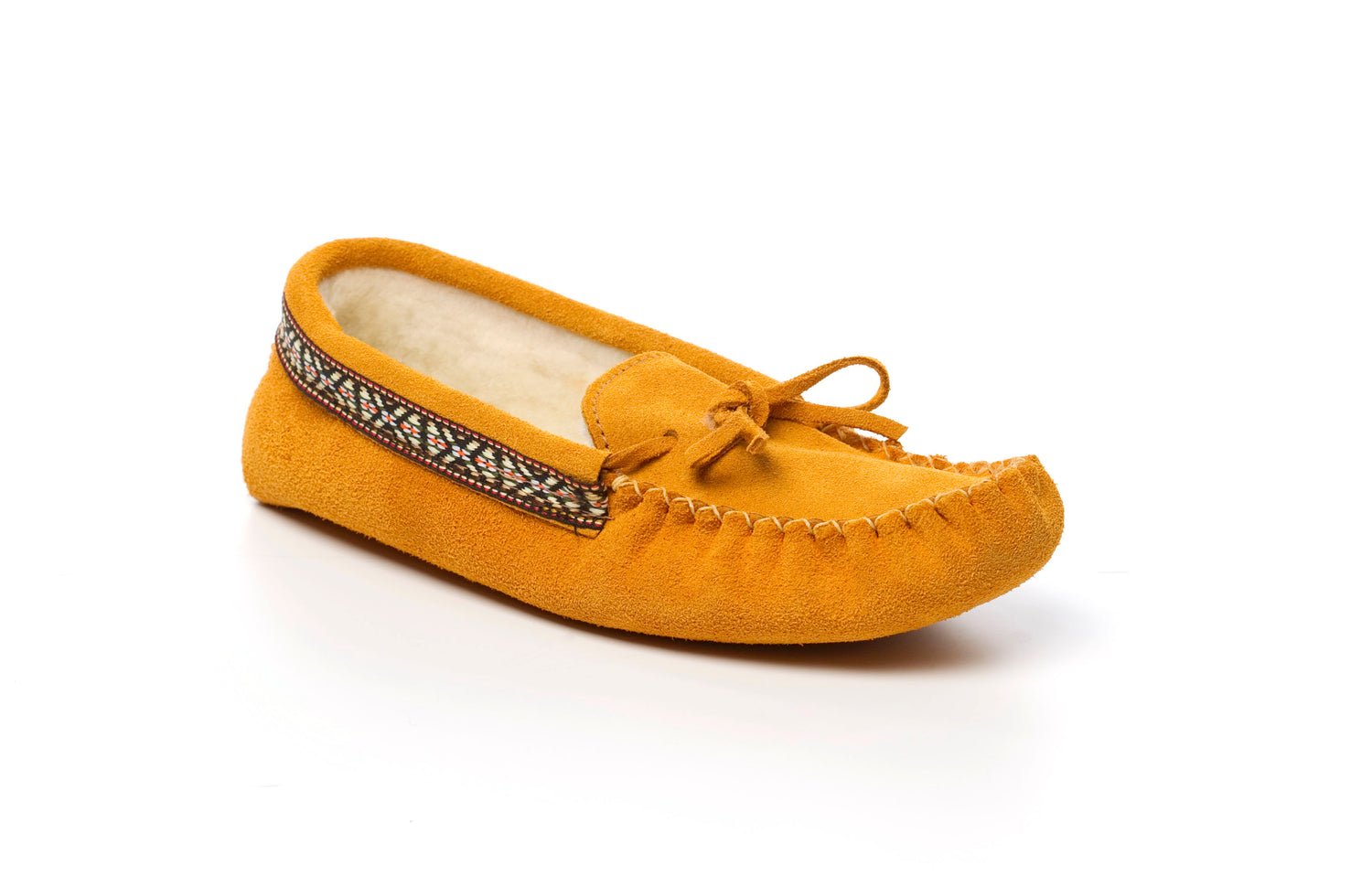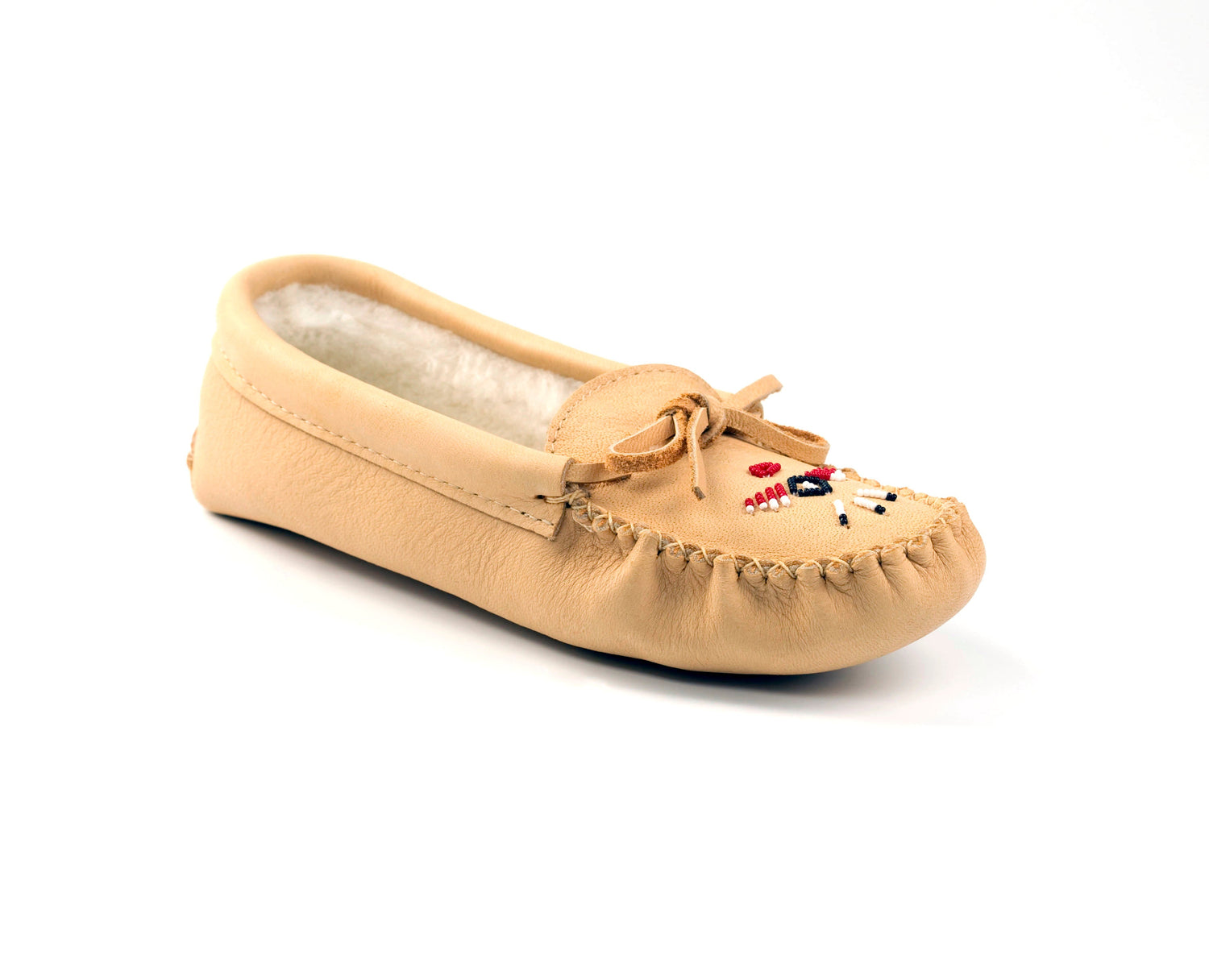
The Trapper and the Moccasins: A Short Story
Share
The Trapper and the Moccasins
In the vast, silent wilderness of what is now northern Alberta, a man named Jacques lived by the rhythm of the seasons. His hands, calloused and strong, knew the weight of a heavy pack, the bite of a cold wind, and the delicate art of setting a trap. For years, his life had been a solitary dance with the land, his only constant companions the towering pines, the watchful owls, and the whispering snow.
His existence was tied to the heartbeat of the land and the distant promise of the Hudson’s Bay Company. Twice a year, he would gather his season’s bounty—the glistening pelts of beaver, the soft fur of muskrat, and the prized, silver-tipped coat of the fox. This collection, his winter's work, was his currency. It was the only thing that could buy the flour, salt, and steel that kept him alive through the long, unforgiving months.
But Jacques’s heart held a different kind of ambition. He wasn't just trading for himself; he carried the burdens of others. In a small, struggling settlement several days' journey from his cabin, families faced winters with little warmth. Jacques had seen their struggle and carried their need in his mind as he worked. His most important mission was not just to survive, but to bring them the vibrant, thick wool blankets that were a hallmark of the Hudson's Bay Company. To him, the multi-striped blankets were not just goods; they were hope against the cold.
The journey to the trading post was always an ordeal. The trail was a ghost, often buried under snow and ice. His sled, piled high with furs, was a stubborn weight behind him. Day after day, he pushed forward, guided by the stars and the unshakeable sense of purpose. As he neared the post, the air began to fill with the smoke of chimneys and the faint scent of human life. The sight of the sturdy wooden walls of the trading post was always a welcome relief.
Inside, the post was a bustling world of its own. The air was thick with the smell of leather, tobacco, and woodsmoke. Jacques laid out his furs, and the factor, a stern but fair man with a ledger book and a quill, assessed them. The trade was long and careful, and as the pile of goods grew, Jacques finally spoke the words he had been waiting for.
"I need five of your best Hudson's Bay blankets," he said, his voice a gravelly rumble. "The thickest you have. For the families at the settlement."
The factor, used to men trading for their own provisions, nodded with a rare glimmer of understanding in his eyes. He set aside the blankets, their bold stripes of green, red, yellow, and blue a cheerful splash of color in the dim light of the post.
With the main trade complete, Jacques turned his attention to a different kind of exchange. Near the back of the post, a few local Indigenous people had set up their own small market, offering handcrafted goods. His eyes fell on a pair of moccasins, crafted from soft, tan moose hide and adorned with a simple, elegant beadwork pattern. They were a world away from his worn, heavy boots.
"Those moccasins," he said to the man who made them. "What would you take for them?"
The man, an elder with a kind face, looked at Jacques's feet, then at the thick leather boots he wore. He held up a small, perfectly tanned ermine pelt, a tiny, valuable white fur that Jacques had saved for a special trade. "This is worth much," the elder said. "But these moccasins... they carry the spirit of the moose, who is strong and steady. I will trade them for a length of your flour, and a pound of your best tobacco."
Jacques smiled. It was a fair trade, not in coin, but in a mutual understanding of need and value. The moccasins were a luxury, a comfort he would carry on his long journey home, a physical connection to the people he lived among.
His return trip was lighter in spirit, even as his sled was heavy with goods. He dropped off the blankets at the grateful settlement, the families' faces lighting up at the sight of the warm wool. He spent a little time there, listening to their stories and sharing his own, feeling the sense of community that his solitary life so often lacked. When he finally walked the last leg home, he wore the moccasins, there soft soles silent on the snow. He felt a different kind of pride than he did when he had a sled full of furs. He felt the true wealth of his life.
The moral of the story is that the greatest riches are not found in what you gather for yourself, but in what you share with others. Trade is more than a transaction of goods; it is an exchange of trust, respect, and generosity that can warm a community just as much as a Hudson's Bay blanket.



